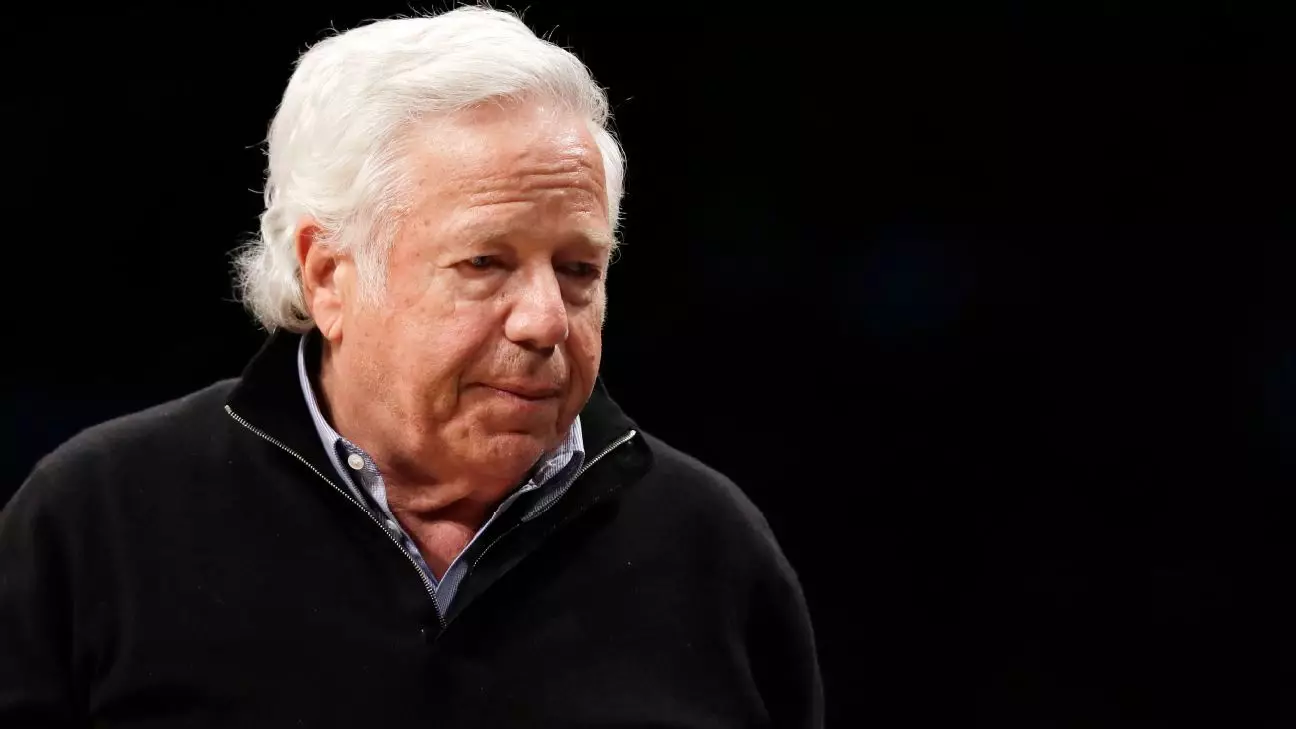In a surprising turn of events, Robert Kraft, the prominent owner of the New England Patriots and a figure synonymous with NFL success, has once again failed to receive a nod from the Pro Football Hall of Fame’s contributor committee. For the 2025 induction class, the committee opted to elevate Ralph Hay, an influential figure from the NFL’s formative years, to the forefront, leaving Kraft’s supporters perplexed and disheartened. This decision reflects not only the intricacies of the Hall of Fame’s selection process but also the nuanced dialogue surrounding contributions to the sport of football.
Kraft, at 83, has now experienced thirteen consecutive years of being eligible for induction without making the cut from committee considerations. Meanwhile, Hay’s ascension as a finalist, despite being relatively obscure to many fans, has reignited discussions about the criteria and historical perspectives that play into such decisions. While Hay stands as a co-founder of the NFL and a key instigator in the early formation of professional football as we know it, one must question whether his contributions, which lack the tangible achievements of modern-day players and owners, should outweigh the monumental playoff success and cultural impact that Kraft introduced within the league.
Kraft’s ownership of the Patriots dates back to 1994, and his tenure has seen an extraordinary transformation of a once-ineffective franchise into a dynasty. Under his leadership, the Patriots captured six Super Bowl titles and established themselves as a staple success story within American sports. Appointing Bill Belichick as head coach was a defining moment, and Kraft’s overall commitment to excellence in not just winning games but fostering a winning culture within the organization is commendable.
Yet, despite his monumental achievements, Kraft’s failure to earn the Hall’s approval lends an air of intrigue surrounding the voting dynamics. Many Hall of Fame voters expressed their astonishment at this latest decision, highlighting a perceived bias against modern contributors when compared to the figures entrenched in the league’s legacy. This juxtaposition places Kraft in a fraught position as he concurrently embodies the contemporary success model while grappling with the weight of historical tradition.
Ralph Hay is often referred to as the “founding father” of the NFL. His orchestration of the 1920 meeting that catalyzed the creation of what would become the NFL is arguably one of the most significant events in American sports history. Historians assert that without his contributions—despite their brevity, as he owned the Canton Bulldogs for only four years—there is a plausible chance the league would not exist today. His historical merit, in contrast to Kraft’s domestic success, raises the question: How do we value foundational moments against the ongoing achievements that those foundations enabled?
Critics of the Hall’s decision have pointed out the contradictory narrative surrounding Hay’s legacy. Some argue that Hay’s reportedly anti-player salary stance and relatively short team ownership period diminish his qualifications for such stature. This sentiment reflects a broader discussion about the nature of contributions deemed deserving of immortalization within the Hall of Fame.
The selection process for the Hall of Fame has evolved in recent years, notably the separation of contributors and coaches into distinct categories, leading to increasing scrutiny over the criteria. Kraft has had a concerted advocacy campaign championed by his inner circle, yet reports suggest a quieter approach in his latest bid. In past years, public relations and strategic visibility—like the distribution of books advocating for his induction—have been key components of that campaign.
Yet, the seeming retreat in advocacy this year raises questions: Is advocacy less effective when viewed against the backdrop of long-standing historical narratives? The contrast between Kraft’s contemporary approach to ownership and team management and Hay’s early contributions may prove to be an insurmountable barrier in the eyes of the Hall’s selection committees.
The ongoing saga surrounding Robert Kraft’s Hall of Fame aspirations invites a broader discourse about the legacy of football and the figures who have shaped it through various eras. While contemporary icons are often overshadowed by the historical giants, it is imperative to reconcile the significance of contributions across both timelines. As Kraft’s supporters continue to rally for his induction, the Hall of Fame finds itself at a crucible of tradition versus progress, a theme that ultimately reflects the sport’s evolution itself. The decision to recognize Hay over Kraft serves as a poignant reminder of where reverence for foundational figures meets the reality of modern athletic achievements. As we await the official announcements, one can only wonder how this narrative will continue to unfold in the annals of NFL history.


Leave a Reply